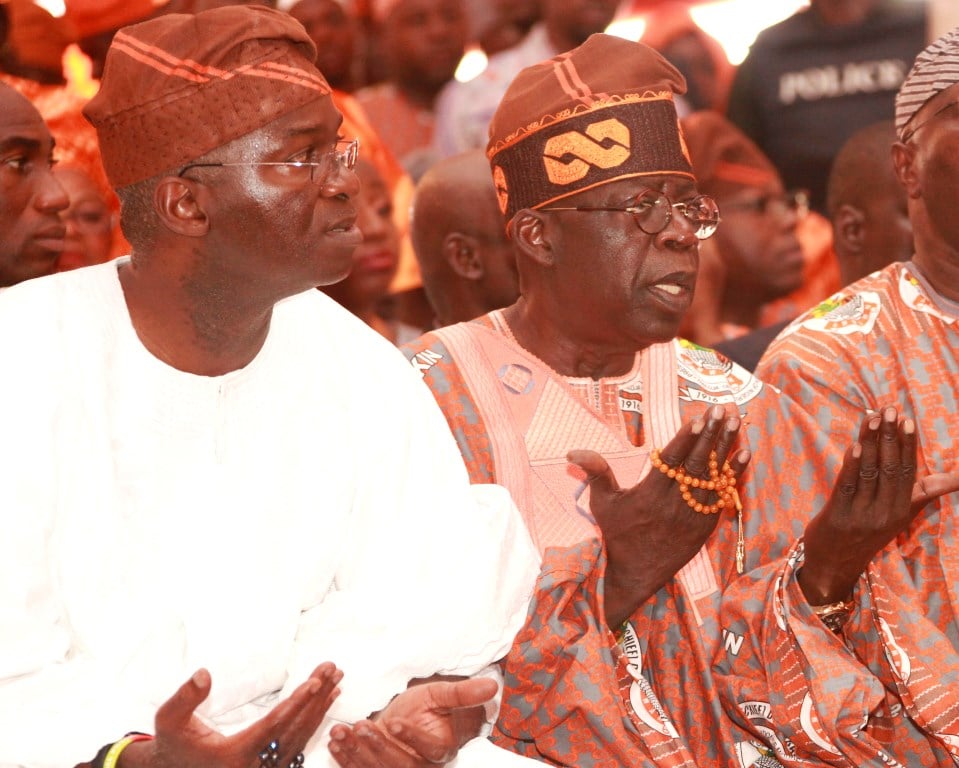The culture of demolition of houses in Nigeria since 1999 has left citizens in a vain search for an answer to a constitutionally reprehensible question of whether democracy is actually a better system of government than the various other systems. The practice of democracy in some developing nations may be a mocked system of government. While to the majority of the civilized nations of the world, democracy remains the most beneficial and appropriate system.
Democracy, especially representative democracy, endorsed by the Nigerian State gives every citizen a voice, through their elected representatives at every tier of government. The bedrock of democracy is the rule of law, which abhors the rule of force and any act, which does not conform to the due process of law. The constitution, which is the Grundnorm, donates a right to citizens and all persons in section 44(1) thus:-
“No moveable property or any interest in an immoveable property shall be taken possession of compulsorily and no right over or interest in any such property shall be acquired compulsorily in any part of Nigeria except in the manner and for the purposes prescribed by a law that, among other things-
- Requires the prompt payment of compensation therefor, and
- Gives to any person claiming such compensation a right of access for the determination of his interest in the property and the amount of compensation to a court of law or tribunal or body having jurisdiction in that part of Nigeria.”
Whether our political office holders and ‘so called agents of change’ are mindful of the rights guaranteed by chapter IV of the Constitution of the Federal Republic of Nigeria 1999 (as amended) and the freedom attached to the rights which are only circumscribed by the constitution, is yet to be seen. It appears that in Nigeria ‘might’ is still ‘right’ and some of “Our Excellences” believe that government can do no wrong. Perhaps they are too busy plotting and planning for the inevitable 2019 to even look at our laws in ‘the hear and now,’ including the Constitution of Nigeria; the provisions of which they swore to uphold.
Advertisement
The consistent “Zip-a-dee-doo-dah, Zip-a-dee-ay…Wonderful feeling, wonderful day” demolition of buildings in Nigeria without recourse to the due process of the law is a inconsiderate and violent violation of the constitutional and social contract our political office holders have with the people they represent.
Many a time, the demolition gangbangers will not even allow owners or occupiers of houses to evacuate their moveable belongings from the buildings before pulling them down. Demolition has sent so many souls to their early graves, rendered thousands of families homeless and created serious apprehension in the minds of many as to what will become the fate of their abode, at the pleasure of the overly gung ho public chief executive officer.
Between 2003 and 2007 the Federal Capital Territory witnessed the worst litany of cases of demolition of buildings under the then government. The government gave plausible reasons quite alright, such as clearing structures from sewage lines, to maintain the statutory distance from electricity high tension, to remove structures from road corridors, to remove structures not approved by the development control authority among other reasons. Sadly, the victims of the demolition were not accorded fair hearing before their houses were pulled down. Those who went to court had their houses pulled down irrespective of the pendency of their suits and it was a huge frustration of station for the victims. Judgments of court of competent jurisdiction were not obeyed and it was a situation of anarchy in the Federal Capital Territory, but the Papa Smurfs didn’t appear to give a hoot because they had their lush mushrooms to retreat to!
Advertisement
It must, however, be noted that the legal situation of the demolitions in Abuja had its very own unique rules, which somehow gave the government an upper hand. This rests in the legal status of Abuja. From the enactment of the Federal Capital Territory Act on the 4th of February 1976, the area comprising the Federal Capital Territory absolutely vests in the Federal Government of Nigeria. Section 1 (3) of the Federal Capital Territory Act provides:-
“The area contained in the Capital Territory shall, as from the commencement of this Act, cease to be a portion of the States concerned and shall henceforth be governed and administered by or under the control of the Government of the Federation to the exclusion of any other person or authority whatsoever and the ownership of the lands comprised in the Federal Capital Territory shall likewise vest absolutely in the Government of the Federation.”
With the above provision, the Federal Capital Territory belongs, in the formal quote of President Muhammadu Buhari, “for everybody and for nobody…!” From that starting point, it then follows that the foolhardy, chip-on-the-shoulder sentimental and emotional attachment to states, which indigenes of the states have, becomes inapplicable to the land in Abuja. For those whose houses were demolished in Abuja, at the time, as painful as it was, they really had little to no outlet. Most had to take solace in the fact that they had other houses in their states. For those who didn’t, they had to improvise by erecting structures in the states in the hope that they would be more secured. Taking the demolition culture to the states the same way it plagued Abuja may not be as legally easy as it was in Abuja. Yet, in some states, there goes the demolition bulldozer…!
The just concluded election saw the APC come into power with a ‘change’ slogan that rocked Nigeria as a wildfire would, culminating in a near total victory for the party especially in the North of Nigeria. The enthusiasm that greeted the victory of the APC at the center and in the states was unprecedented. So many Nigerians lost their lives in celebration of the change that had come to liberate them from what they considered the nauseating impunity of the People Democratic Party. Little did they know that, though political parties may bear different names, most politicians remain who and what they are!
Advertisement
Today, some of those who anticipated change at the grass-root level, are searching with microscopic lens to see the change they were promised, beside the fact that their houses are being demolished. And these houses are being demolished through means that does not entirely apply the law in the way, manner and due process of which the law requires.
The specific governments are justifying their actions by saying they are ameliorating an illegality. Last time I checked, “unum illegitimitate non curare aliud illegitimitate …” One illegality cannot be used to cure another illegality.
It could be said that certain government officials come across as people with high taste for the aesthetic splendor of their environment. Who can blame them? Most of us like to see beautiful surroundings. Possibly, as a result of this, they don’t seem gun-shy to demolish any obstacle to achieve the best.
In the past, some of the ‘so called Excellency’s,’ in regions where they displayed their worth, seem to think that they are wearing a cloak of improved value, courtesy of their tenure as the executive officials.
Advertisement
Few in this country can dismiss the brilliance and achievements of some executives; few can dispute that their performance towers above that of all of their other counterparts. However, putting the beauty and aesthetics of the territories under their stewardship aside, the big question is; can one tell that fallacy to the families that may have lost loved ones as a result of cardiac ailments or extreme emotional trauma arising from the demolition of their houses? What about those who left the Federal Capital Territory and went back to their villages without a single belonging despite the years and effort they put into providing for their families? Have we even thought of the adverse economic effects of the demolitions on these families, bearing in mind those who obtained facilities from finance houses to build or acquire those demolished houses may have no means of paying back their creditors? The adverse effects are legion.
As we watch the demolition culture make a ‘giant’ (yes… pun intended) comeback in some states, the people are being fed with the same ingenious dribble of getting the public to understand this revolutionary demolition course.
Advertisement
Some reasons why demolitions must apparently take place include, recovering school and hospital plots of land that where illegally acquired and the second reason is to prevent encroachment on schools and hospital land. Taking such reasoning into consideration, alone, is enough to convince anyone on this worthwhile, executive initiative. However, in implementing these policies, it is imperative for due process and legality to be followed. The law remains as it is and no amount of political alluring spiel changes that!
The people in each state occupying their land are there as of right as owners. The constitution gives a right to a citizen of Nigeria to own immovable property anywhere in Nigeria. No governor, legislature, community leader, columnist, or activist can tell Nigerians otherwise. The only words that matter in this respect are those enshrined in Sections 43 and 44 of The Constitution of The Federal Republic Of Nigeria.
Advertisement
The rights or interest of the people in the land cannot be taken away arbitrarily without affording them an opportunity to be heard fairly in accordance with section 36 of that same constitution.
When such a hearing is conducted, it may, in some cases, reveal that the state allocated the land to those in possession and as such they have a legal Right of Occupancy over the land. Others may come up with claims that the land is their family land and the government built the schools and hospitals thereon without compensating or resettling them. There could be a plethora of reasons and distinct legal consequences will apply to the various legal issues.
Advertisement
The mere mention of schools and hospitals has become the magic wand in the hands of the governments in question, rendering impoverished citizens homeless without anything more. Assuming without conceding that the victims had no right to occupy the land and houses, due process of the Law must still be observed in evicting them, for as long as they claim a right over the land or premises. Self-help is forbidden under any of our Nigerian laws.
In the case of the Military Governor of Lagos State & 2Ors V. Chief Emeka Odumegwu Ojukwu & Anor (1986) 1 NWLR 621 at 637-638, paragraphs H-D, Obaseki, JSC, in utter condemnation of the illegality involved in the action of Lagos State through self-help referred to this English case the principle of which applies to Nigeria with equal force. The Law Lord held:
“I will not like to leave this ruling without referring to the case of Agbor V. Metropolitan Police Commissioner (1969) 1 WLR 703. In that case, acting on executive instructions through the foreign office and the Home Office, the Metropolitan Police had on March 7, summarily evicted the Applicant and her children. Marvis Jones, J. refused the Orders asked for. On appeal to the Court of Appeal, allowing the appeal, Lord Denning, M. R. said at P. 707.
‘The plain fact here is that Mr. & Mrs. Agbor claim as of right to be entitled to possession of the ground floor of this house. They occupied it on February 4. They entered by stealth. They used a key that had been left behind. But they did it under a claim of right. It may be that they had no such right as they claimed. But even so the proper way to evict her was by application to the Courts of Law. No one is entitled to possession of premises by a strong hand or with multitude of people. That has been forbidden ever since the statute of Richard II against forcible entry. This applies to the Police as much as to anyone else. It applies to the government departments also…. They must not take the Law into their own hands. They must apply to the Court for possession and act only on the authority of the Court… seeing however that possession was taken from her wrongfully, it should be restored to her. Thus only can the law be vindicated. If she is to be turned out, it must be by due process in the Courts of law and not by action of the executive… In my judgment, this Court should make an interim order that she be restored to her possession of this flat. The final rights can be decided later”
This is the voice of the Supreme Court of Nigeria – the Law! What is going on in the states where people’s houses and lands are wantonly being demolished is unfair and a ‘brazen affront on the law!’
In many of the Northern states that had been created during the old Northern Region, the people’s rights cannot be controverted by trigger-happy executives in 2015. No power hungry Oompaloompa with their Napoleon Syndrome and Machiavellian schemes of ultimate rule should be allowed to controvert the rights of the people, purely because they found a means to connive and scheme themselves into power. These are people’s lives and every imp, maggot and midget needs to reign in their draconian ploys emanating from a severe inferiority complex and sense of entitlement to power as far as rendering people homeless is concerned. Unless, of course, if the process is done legally and the people uprooted are adequately compensated.
In pre-colonial Northern Nigeria, land was vested in communities, families, individuals with the Traditional Chiefs wielding overbearing influence on matters relating to land control, possession and ownership. The colonial land policy in Northern Nigeria recognized a paternalistic policy in land tenure system constructed out of the report of the “Northern Nigeria Lands Committee (1908).” The report, which was submitted by the Rt. Hon, The Earl of Crewe, to the secretary of State for the colonies on 19th July, 1908 was adopted by the colonial administration in 1910. The committee was set up on the initiative of Sir Percy Gironard, who succeeded Sir Frederick Lugard as Governor of Northern region having paid special attention to the subject of Land Tenure in Northern Nigeria. He drew the attention of home authorities to “the necessity of independent and expert advise upon a subject of such vital importance to the present and future welfare of the inhabitants of northern Nigeria.”
The committee recommended the promulgation of a law embodying the following principles;
- The whole of the land should be brought under the control of the government which should take the place of the traditional rulers in land matters;
- The government having succeeded to the status of land controlling and allocating authority should make grants for the use and enjoying of land to individuals and families;
- No title to the use and occupation of such lands shall be valid without the consent of the governor.
Effect was given to these recommendations by the promulgation of the land and Native Rights Proclamation of 1910. The proclamation, which was repealed by and re-enacted as the land and Native Rights Ordinance of 1916 was subsequently replaced by the land Tenure Law, 1962. One thing, however, is instructive from the colonial land policy. It recognized the present and future welfare, of the inhabitants of Northern Nigeria as regards landholding. It is also worthy of note that the legislation was repealed because it was ‘expropriate’ in nature and the requirement of the governor’s consent was seriously criticized. The Land Tenure Law was in operation until the promulgation of the Land Use Decree in 1978.
The Land Use Decree, which eventually became the Land Use Act vests the land in the Governor of every state to hold in trust for the people living in the relevant states. It does not vest absolute right in the Governor to undermine the rights and interest of people in the State. Considering the fact that some of the governors actually went to read law in school, one would have thought they would have, at the very least, comprehended this very basic fact!
Each Governor must act within the province of the Act, regardless of how active they want to prove to the World they are. For those who have Rights of Occupancy over the areas termed schools and hospital land in the affected states, such interest or right must first be revoked in accordance with section 28 of the Land Use Act and notice of such revocation must be served on them in accordance with section 44 of the same Act. These actions should then be followed by valuation of improvement on the land and payment of compensation in the applicable cases.
With humility, some of these overzealous, gung-ho governors must understand that, although some of the victims of their demolitions may not have a documentary right of occupancy, that still does not out rightly render them illegal occupants of the land. Part IV of the Land Use Act deals with existing interests in land before the coming into force of the land Use Act. On the commencement of the Act, such deemed rights were recognized as rights of Occupancy, as if granted “by the appropriate authority.”
The necessity for hearing the victims of and would-be victims of the demolition exercise is sacrosanct and the failure to give them a hearing is an illegality and fatal. Even in the extreme situation where occupiers of land are believed to have obtained land with ‘animus furandi’ and deemed unable to pursue legal remedy due to the doctrine of ‘Ex turpi causa non oritur action,’ and their own illegal act, the government still has an obligation to give the people fair hearing and an opportunity to prove that there was no animus furandi.
Another serious issue that should agitate the mind of any serious government in the North is that, with the ornery of horror created by the insurgency and the attendant flurry of fury by all Nigerians, should demolition of houses really top the priority of any government policy now? We have so many Internally Displaced Peoples (IDP) camps spread all over Nigeria. Government is planning on how to restore the homes of these poor people and build houses for those who have lost their houses to the destructive tendencies of the insurgents. What do we say about government adding to the sorrows of Nigerians at this time that we expect succor from the new administration?
One must admit that the governments, which are undertaking this onerous task may actually mean well for the state and for the overall betterment for the people of these specific states. Development in the states must be for the benefit of the people of the state. However, any development that does not take into consideration the welfare of the people while contravening National laws, international conventions and practice must be discouraged.
There is continuity in government and whatever it is that the present administration considers the sins of the past administrations in the state must not be visited on the innocent people of the relevant States.
It is too early in the day for the people of the affected States to begin to see this ugly side of the change promised giving their massive support for the APC.
As the demolitions continue, it may just be that some of the more overzealous governors have inadvertently opened a floodgate of litigation in the courts. They may have to be prepared incase the courts enforce the judgments against the State should the matter be litigated on.
If, in anticipation of litigation, the state’s defense for the wanton demolition, without following due process, is ‘ex turpi causa’ or the “illegality defence,” it is better for Nigerians to hear the courts rule on whether those affected by the demolitions have no right to sue by virtue of their own illegality rather than receiving the information from the podcasts of the Beavis’s and Butthead’s of our governments, as if in an audition for the next installment of the Die Hard franchise.
…I encourage every person affected by the mass government demolitions of houses and property going on in certain states to immediately seek legal counsel in order to know if they are one of the oppressed people the law actually protects against the Elmer J. Fudd’s of this cataclysm of change!
I invite you to:
Follow me on Twitter- @hanneymusawa
Visit my Website- www.hanneymusawa.com
Like my Facebook- www.facebook.com/hannatu.musawa
Text *(STRICTLY SMS REFERRING TO ARTICLES ONLY): 08116759753
Subscribe to my Youtube Channel-www.youtube.com/HannatuMusawa
Views expressed by contributors are strictly personal and not of TheCable.




